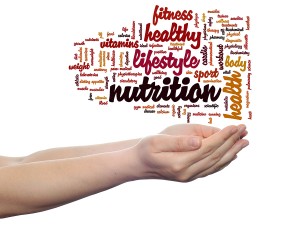Regain Control as You Discover How Food Affects Your Mood
 “You are what you eat.” Often that is said about our physical health, but is it also true of our emotional wellbeing? Can we change our mood by changing what we eat? Women especially seem to be emotional eaters. Many of us seek stress relief by indulging in comfort food like ice cream, chips or chocolate. There’s even been a new word added to online dictionaries to recognize the connection between being hungry and being angry…it’s HANGRY.
“You are what you eat.” Often that is said about our physical health, but is it also true of our emotional wellbeing? Can we change our mood by changing what we eat? Women especially seem to be emotional eaters. Many of us seek stress relief by indulging in comfort food like ice cream, chips or chocolate. There’s even been a new word added to online dictionaries to recognize the connection between being hungry and being angry…it’s HANGRY.
Actually research is showing there’s a huge connection between why we eat and our emotions. But you already knew that, right? When we’re depressed or lonely we eat. When we’re excited and happy we eat. When we’re celebrating a special event we splurge on eating something special.
Food is an important part of our culture. The problem is we consume too much of overly-processed, chemicals-added, sugary, salty, fatty “fake foods”. Our taste buds have forgotten how to savor the delicate flavors of wholesome food.
It’s only in recent years that the human race has had access to so many choices. In times past, we were limited by what was grown locally or what took weeks to transport in. And people used up those calories quickly, as they did hard physical work to survive.
Dr. Leigh Gibson, a psychology professor at the University of Roehampton in London, makes this observation, “For much of human history, energy-dense foods, or what we now consider comfort foods, were the ideal thing to eat…Healthy eating is a modern thing that we now need because we’re living so long. You could almost say the default is comfort eating.”
One important question is: What’s your immediate reaction when you eat? How does food affect your mood? Do you feel guilty? Do you feel sluggish? Do you feel invigorated? Do you feel nourished and happy?
Too often people define themselves by their relationship with food. Dieting has caused an unhealthy attitude toward food. If they eat something that’s not on their list, they call it “cheating.” One “slip” and they tell themselves horrible stories, “What’s the use. I’m such a failure. Why even try. I’m always going to be fat.” Food is not your enemy.
Another important question is: How does what you eat today affect your mood days later? In a study published in 2012, Penn State psychology professor Dr. Helen Hendy found that the link between foods and moods played out over a period of two days—what you eat on day one is linked to how you feel on day three. She noted, “Consumption of calories, saturated fat, and sodium was significantly associated with increased negative mood two days later.” Dr. Hendy has even changed her habits based on this. When she has a meeting scheduled, she watches her calories, sodium and fat intake to give herself a better chance of creating a good mood.
No matter what the studies say, you are in the best position to determine how you and your body react to your eating habits. If you intend to mindfully eat healthfully and you follow through, achieving that goal is guaranteed to contribute to better emotions. On the other hand, if you’ve developed an unhealthy relationship with food and want to regain control, give me a call and we’ll talk about how you can mindfully reconnect with your body, your spirit and your world so you make lasting changes

